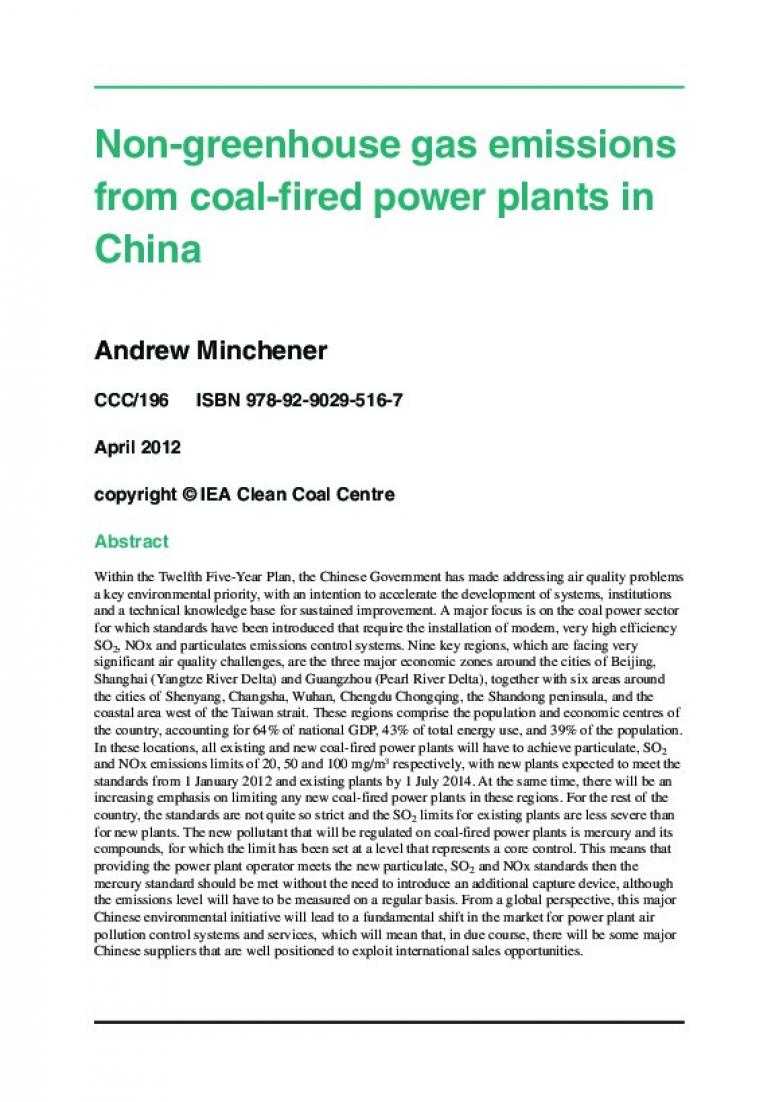CCC/196 ISBN 978-92-9029-516-7
April 2012
copyright © IEA Clean Coal Centre
Abstract
Within the Twelfth Five-Year Plan, the Chinese Government has made addressing air quality problems
a key environmental priority, with an intention to accelerate the development of systems, institutions
and a technical knowledge base for sustained improvement. A major focus is on the coal power sector
for which standards have been introduced that require the installation of modern, very high efficiency
SO2, NOx and particulates emissions control systems. Nine key regions, which are facing very
significant air quality challenges, are the three major economic zones around the cities of Beijing,
Shanghai (Yangtze River Delta) and Guangzhou (Pearl River Delta), together with six areas around
the cities of Shenyang, Changsha, Wuhan, Chengdu Chongqing, the Shandong peninsula, and the
coastal area west of the Taiwan strait. These regions comprise the population and economic centres of
the country, accounting for 64% of national GDP, 43% of total energy use, and 39% of the population.
In these locations, all existing and new coal-fired power plants will have to achieve particulate, SO2
and NOx emissions limits of 20, 50 and 100 mg/m3 respectively, with new plants expected to meet the
standards from 1 January 2012 and existing plants by 1 July 2014. At the same time, there will be an
increasing emphasis on limiting any new coal-fired power plants in these regions. For the rest of the
country, the standards are not quite so strict and the SO2 limits for existing plants are less severe than
for new plants. The new pollutant that will be regulated on coal-fired power plants is mercury and its
compounds, for which the limit has been set at a level that represents a core control. This means that
providing the power plant operator meets the new particulate, SO2 and NOx standards then the
mercury standard should be met without the need to introduce an additional capture device, although
the emissions level will have to be measured on a regular basis. From a global perspective, this major
Chinese environmental initiative will lead to a fundamental shift in the market for power plant air
pollution control systems and services, which will mean that, in due course, there will be some major
Chinese suppliers that are well positioned to exploit international sales opportunities.
| Attachment | Size |
|---|---|
| 408.7 KB |


